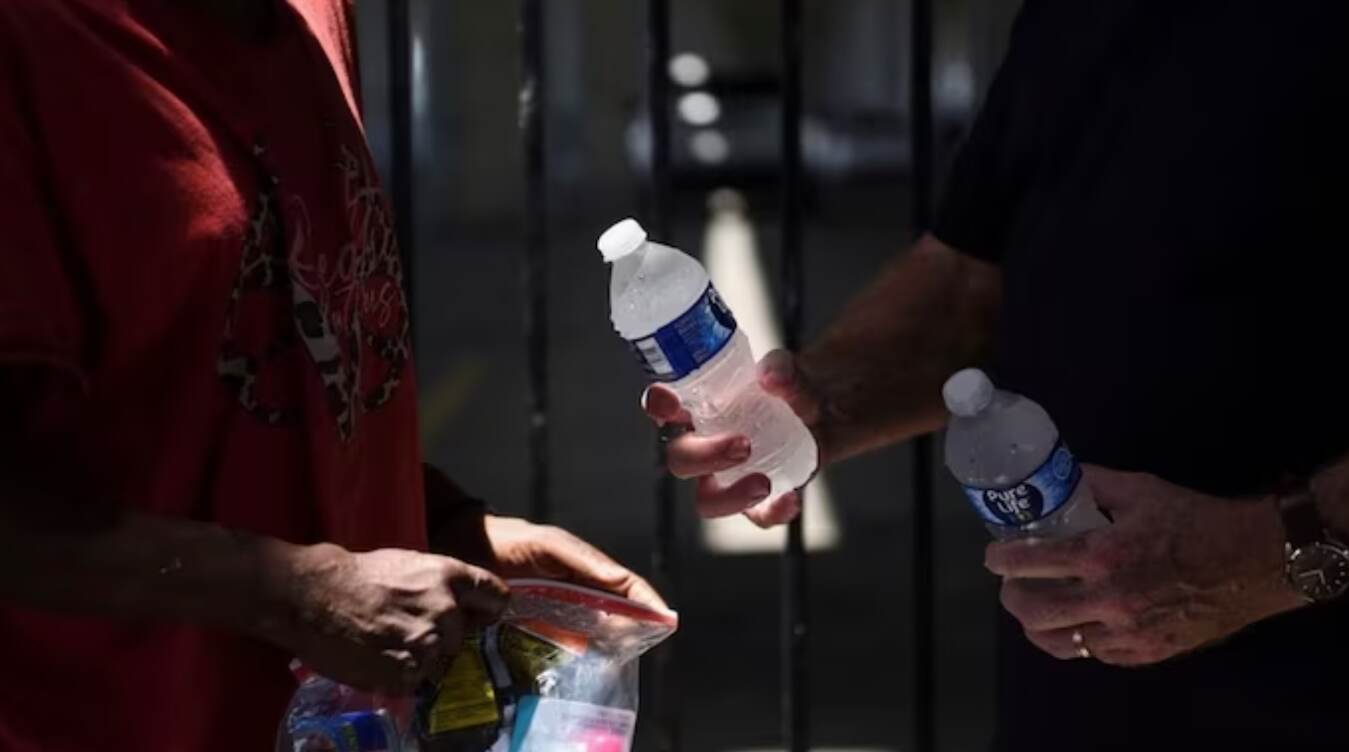Record High Temperatures and Air Pollution Put US South and Midwest in Danger
The growing frequency and intensity of severe weather events across the United States is a stark reminder of the effects of climate change. The NWS is urging people across the South to stay out of the sun and take precautions to protect their health during this prolonged heatwave. In the Midwest, people are encouraged to stay indoors and take steps to protect their respiratory health.
As July approaches, the US South is experiencing dangerously high temperatures and oppressive humidity, while the Midwest is under a cloud of hazy smoke from Canadian wildfires. Both situations are the result of a stationary high-pressure system, commonly known as a heat dome, that has been lingering for the past few weeks. This heatwave has already claimed the lives of two people, and is leading to a stark reminder of the effects of human-driven climate change.
The National Weather Service issued excessive heat watches, warnings, and advisories across an area that covers more than 62 million Americans in central Arizona, Texas, the Deep South, and Florida's panhandle. Temperatures and heat indices have already risen above 110 degrees Fahrenheit in Dallas, New Orleans, and Mobile, Alabama, with more extreme temperatures in store. Mayor LaToya Cantrell of New Orleans urged people to take extra precautions in light of the "unprecedented" heatwave and its potential health threats. She reminded residents to find ways to cool down and drink plenty of fluids.
The city also opened cooling centres to help protect vulnerable people, such as children, the elderly, and those with respiratory diseases. In the Midwest, air-quality alerts were issued in several cities due to the smoke from Canadian wildfires. Chicago, in particular, was reported to have the worst air quality of any large city in the world. People in the area were encouraged to stay indoors, especially those who suffer from respiratory issues.
The growing frequency and intensity of severe weather events across the United States is a stark reminder of the effects of climate change. The NWS is urging people across the South to stay out of the sun and take precautions to protect their health during this prolonged heatwave. In the Midwest, people are encouraged to stay indoors and take steps to protect their respiratory health. Both situations serve as a sober reminder of the risks of climate change.




